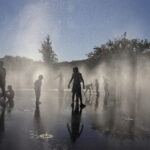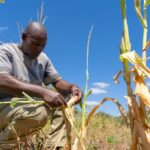
Durban – One of the things director of Gift of the Givers, Imtiaz Sooliman will never forget were the calls for help at 1am on April 11, 2022.
On that day a year ago, many lives were affected following the devastating floods that left many homeless and at least 482 people dead.
This week the University of Wits said a new study revealed that the April floods were the most catastrophic natural disaster yet recorded in KwaZulu-Natal.
The study revealed over 4 000 homes were destroyed, 40 000 people left homeless, and 45 000 people were temporarily left unemployed. Imtiaz Sooliman said that reflecting back, the real heroes were the ordinary citizens.
“To see the response from the public, how everyone assisted each other, how corporates asking what assistance was required at 1am.
“The speed at which everything moved, to see citizens getting involved to help fellow South Africans.
“It was a time of hope, despite all the carnage and the loss of life.
“But South Africans showed their resilience and stood up to the challenge, coming with a pot of food, some blankets, some clothes, helping each other, giving hope.
“Rescuing people from roofs, using boats, these were not disaster management people, these were just ordinary South Africans.
“It shows you that South Africans in any calamity will stand up to help their fellow South Africans, and for me, this was the greatest lesson from the floods of April 2022,” he said.
Sooliman said Gift of the Givers stopped all their work and focussed of supplying water to hospitals and clinics, while providing food and other packages to those affected.
Some 30 super links of bottled water was transported to KZN from Cape Town courtesy of Titan Transport.
Some of the most affected areas were Umdloti and Tongaat.
Parts of roads and homes were washed away in Umdloti and road infrastructure collapsed.
In Tongaat, the entire water treatment plant was washed away and residents had been left without water for almost 10 months, leading to protests over the delays.
Sooliman said in Tongaat there were 17 boreholes they installed.
“We went on to install six boreholes in Howick, seven in Harding and six in Umzinto.
“Water is still a huge challenge in KZN and the E. coli crisis still has to be fixed,” he said.
Sooliman said they had spent R50 million upgrading schools in this period and were busy with two more.
“Infrastructure is still required in terms on water, sewage systems, houses for people, school upgrades, these are the main issues,” he said.
This week, eThekwini Municipality handed over a home to a 76-year-old uMlazi grandmother.
Gogo Ndawonde’s home in U section had been damaged by a retaining wall during the floods.
The City said the three-bedroom home would allow her to live with her grandchildren.
In terms of housing progress, the City said since the floods, 8 000 families who were displaced by floods and moved to 120 mass care centres, are now in safe family-friendly accommodation.
“We are also accelerating a programme of building permanent houses for them. As we speak, the city is preparing eight sites for this purpose,” it said.
Source: iol





